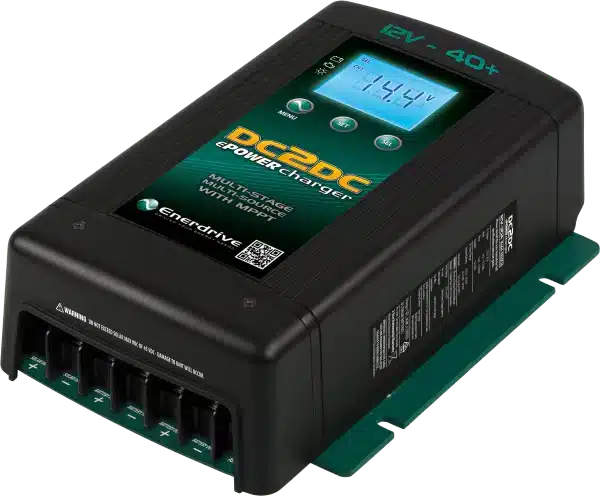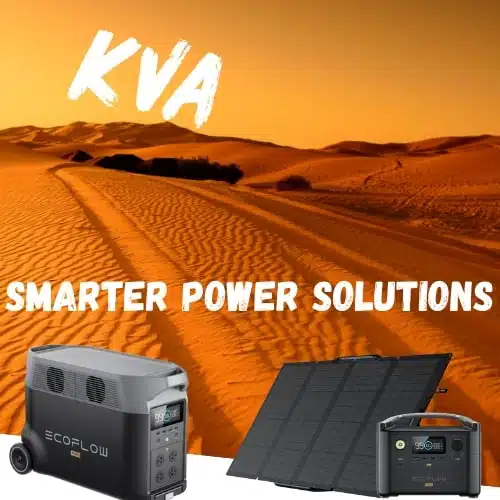The Lithium Battery Revolution
Before we dive into 12V and 24V Lithium Battery BMS, it’s essential to recognize the remarkable revolution that lithium batteries have sparked. These batteries have become the go-to choice for various applications, thanks to their impressive energy density, long cycle life, and lightweight design. Lithium batteries offer a reliable and efficient power source for everything from Caravans, RVs and boats to renewable energy systems and portable devices.

In our increasingly connected and electrified world, the demand for efficient and reliable power storage solutions has never been greater. Whether you’re an off-grid enthusiast, a marine adventurer, or simply someone looking to harness the power of lithium batteries, understanding battery management systems (BMS) is crucial. In this comprehensive guide, we’ll delve into the world of 12V and 24V lithium battery management systems, unlocking the secrets to maximizing your power storage potential.
The Heart of the System: What Is a BMS?
A Battery Management System (BMS) is the unsung hero behind every lithium battery, ensuring it operates optimally, safely, and efficiently. At its core, a BMS serves as the guardian of your battery pack, overseeing critical functions, including:
- Balancing: Lithium cells within a battery pack can vary slightly in capacity and voltage. A BMS balances these cells to ensure uniform performance and prevent overcharging or discharging of individual cells.
- Voltage Monitoring: It constantly monitors the voltage of each cell and the overall pack to prevent overcharging and over-discharging, which can lead to reduced battery life or even safety hazards.
- Temperature Control: Temperature extremes can damage lithium batteries. A BMS keeps a watchful eye on temperature, activating thermal management systems to maintain an optimal operating range.
- State of Charge (SOC) Estimation: Accurate SOC estimation is crucial for knowing how much energy remains in the battery. A BMS provides this information, allowing you to plan power usage effectively.
- Cell Protection: If a cell exhibits abnormalities, such as excessive heat or voltage spikes, the BMS will take action, such as disconnecting the cell from the pack to prevent potential hazards.
Why BMS Matters
- Safety First: Safety is paramount when dealing with lithium batteries. A malfunctioning or absent BMS can lead to thermal runaway, fires, or even explosions. A well-designed BMS acts as a safety net, reducing these risks.
- Longevity: Lithium batteries can last for many years, but only with proper management. A BMS ensures that the battery operates within its specified limits, extending its lifespan.
- Performance Optimization: BMS systems help maximize a battery’s efficiency by preventing overcharging, over-discharging, and cell imbalances. This means more power when you need it and better overall performance.
- Peace of Mind: Whether you’re relying on lithium batteries for an off-grid power system or the propulsion of your marine vessel, knowing that a BMS is on your side provides peace of mind.
12V and 24V Lithium Battery: What’s the Difference?
One of the first decisions you’ll encounter when exploring lithium battery systems is whether to opt for a 12V or 24V setup. Understanding the differences between these voltage configurations is crucial:
- 12V Systems: These are commonly used in smaller applications, such as Caravans, RVs, campervans, and portable power stations. They are known for their ease of installation and the wide availability of 12V appliances and accessories.
- 24V Systems: Typically found in larger applications like marine vessels, commercial vehicles, and renewable energy systems. 24V systems offer advantages such as reduced current, which results in less energy loss during transmission and higher efficiency.
Choosing the Right BMS for Your Needs
Selecting the appropriate BMS for your 12V and 24V Lithium Battery system requires careful consideration of several factors:
- Voltage Compatibility: Ensure the BMS matches the voltage of your 12V and 24V Lithium Battery.
- Capacity: BMS systems are designed for specific battery capacities. Choose one that can handle the capacity of your battery bank.
- Cell Chemistry: Different lithium cell chemistries have unique charging and discharging characteristics. Verify that your chosen BMS is compatible with your battery’s chemistry (e.g., LiFePO4, Li-ion).
- Features: Consider additional features like Bluetooth connectivity for remote monitoring, communication protocols (CAN bus, RS485), and user-friendly interfaces.
- Safety Certifications: Look for BMS systems that adhere to safety standards and certifications, ensuring reliability and peace of mind.
- Expandability: If you plan to expand your battery bank in the future, choose a BMS that can accommodate additional cells.
Harnessing Your Power
In the realm of energy storage and management, the role of 12V and 24V lithium battery management systems is paramount. They ensure the safety, longevity, and optimal performance of your lithium battery systems, whether you’re exploring the great outdoors or navigating the open waters. As you embark on your journey to harness the power of lithium, remember that knowledge is your greatest ally. With the right BMS by your side, you’ll not only unlock the full potential of your batteries but also embark on a path to a more sustainable and empowered future.
Video: How to install a Manager30 battery management system – DIY Manager30 Install

